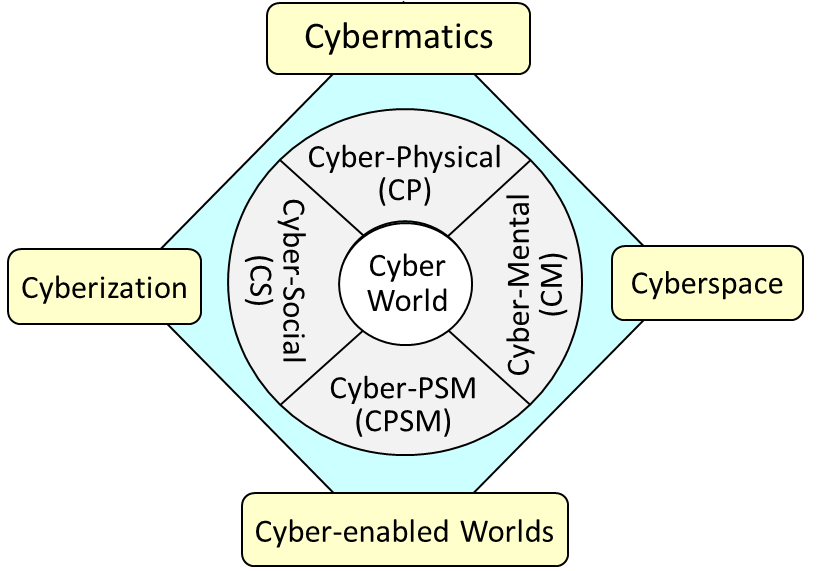
TC Chairs
Jianhua Ma, Hosei University, Japan
Laurence T. Yang, St Francis Xavier University, Canada
Julien Bourgeois, UFC/FEMTO-ST Institute, France
Huansheng Ning, University of Science and Technology Beijing, China
Members (in confirmation)
Payam Barnaghi, University of Surrey, UK Md Zakirul Alam Bhuiyan, Fordham University, USA Jinjun Chen, University of Technology Sydney, Australia Zhong Chen, Peking University, China Kim-Kwang Raymond Choo, The University of Texas at San Antonio, USA Jamal Deen, McMaster University, Canada Tadashi Dohi, Hiroshima University, Japan Bin Guo, Northwestern Polytechnical University, China Song Guo, Hong Kong Polytechnic University, HK Houcine Hassan, Universitat Politecnica de Valencia, Spain Francisco Herrera, University of Granada, Spain Hui-Huang Hsu, Tamkang University, Taiwan Runhe Huang, Hosei University, Japan Qun Jin, Waseda University, Japan Hyoung Joong Kim, Korea University, Republic of Korea Samee U. Khan,The National Science Foundation, USA Neeraj Kumar, Thapar University, Patiala (Punjab), India Shujun Li, University of Surrey, UK Man Lin, St. Francis Xavier University, Canada Hong Liu, Run Technologies Co., China Geyong Min, University of Exeter, UK Klimis Ntalianis, National Technical University of Athens, Greece Witold Pedrycz, University of Alberta, Canada Paulo Pires, Federal University of Rio de Janeiro, Brazil Vincenzo Piuri, University degli Studi di Milano, Italy Florin Pop, University Politechnica of Bucharest, Romania Tie Qiu, Dalian University of Technology, China Rajiv Ranjan, Newcastle University, UK Marco D. Santambrogio, Politecnico di Milano, Milano, Italy Jun Wang, University of Central Florida, USA Kevin Wang, The University of Auckland, New Zealand Stephen S. Yau, Arizona State University, USA Mazin Yousif, T-Systems, International, USA Wenbing Zhao, Cleveland State University, USA Zhangbing Zhou, China University of Geosciences Beijing, China Albert Y. Zomaya, The University of Sydney, Australia
Vision
Cyberization is an emerging trend in which numerous cyber entities in cyberspace will exist in cyber world and cyber-conjugated physical, social and mental worlds. Cybermatics is a holistic field for the systematic study of all cyber related properties, functions, technologies and applications in the coming cyber-enabled new worlds.

scope
Cybermatics refers to the scientific and systematic study of new phenomena, behaviors, properties and practices in the rapidly emerging cyberspace and cyber-enabled worlds, including digital cyber world and cyber-conjugated physical, social and mental worlds. This technical committee aims to establish and promote this new trans-disciplinary study by providing a common platform for scientists and researchers to share their experiences, problems and solutions in various cyber-related areas centered around cyber entities in cyberspace, their properties and functions, as well as their cybernetic relations and conjugations with entities in physical, social and mental spaces.
Cybermatics study mainly covers five aspects: (1) Cyber Entity in Cyberspace, which addresses the theory and methodology of properties and functions for cyberspace and cyber entities; (2) Cyber-Physical Conjugation, which is primarily concerned with how physical entities are generally conjugated with cyber entities; (3) Cyber-Social Conjugation, which is concerned with how social entities including human social organizations and economic activities are conjugated with cyber entities; (4) Cyber-Mental Conjugation is about how to utilize cyber entities and cybermatic technologies to study mental activities, and design cyber-mental entities that understand and serve humans; (5) Cyber-Physical-Social-Mental Integration is for the combinations of the cyber, physical, social, and mental entities in CPSM spaces.
Missions
Cybermatics, as a holistic field for systematic study of cyber-enabled worlds, unleashes a new trans-disciplinary research requiring the involvement and support of a wide range of research communities due to overlapping and interrelating areas and trends. The Technical Committee on Cybermatics for Cyber-enabled Worlds aims at cybermatics research aspects in the cyber entities in the cyberspace, interconnection, interaction, intelligence and inter relationships with other entities in the cyber-physical-social-mental space for establishing and promoting this new trans-disciplinary study. There are important issues that needs to be addressed for cybermatics to build ubiquitous and integrated Cyber-enabled Worlds, including the theory and methodology of the properties and functions of cyber entities, the conjugation of cyber-physical entities (e.g., components, networks, communication, resources, and control), the conjugation of cyber-social entities (e.g., attributes, relationships, behaviors, education and management), the conjugation of cyber-mental entities (e.g., brain informatics, neuroscience, cognition, and affectivity), and the integration CPSM entities (e.g., applications, organization, and interrelationships). This Technical Committee will passionately dedicate to address these issues, and develop the techniques about cybermatics for cyber-enabled worlds, such as sensor networks, context-awareness, cyber mapping and representation of in conventional physical, social and mental spaces, behaviour analysis and modeling of social entities, and brain informatics.
Activities
The 3rd IEEE Smart World Congress (SmartWorld 2017)
August 4-8, 2017, San Francisco, USA
-
The 14th IEEE International Conf. on Ubiquitous Intelligence and Computing (UIC 2017)
August 4-8, 2017, San Francisco, USA
-
The 15th IEEE Int'l Conference on Pervasive Intelligence and Computing (PICom 2017)
November 6-10, 2017, Orlando, USA
-
World Cybermatics Congress (Cybermatics 2017)
Exeter, UK, June 21-23, 2017
-
World Cybermatics Congress (Cybermatics 2016)
Chengdu, China, December 16-19, 2016
-
World Cybermatics Congress (Cybermatics 2015)
Sydney, Australia, December 11-13, 2015
-
World Cybermatics Congress (Cybermatics 2014)
Taipei, Taiwan, September 1-3, 2014
-
World Cybermatics Congress (Cybermatics 2013)
Beijing, China, August 20-23, 2013
-
2016 Cyber Science and Technology Congress (CyberSciTech 2016)
Auckland, New Zealand, August 8-12, 2016
-
The Special Session on Cybermatics for Cyber-enabled Worlds in SMC 2016

Related Info
- J. Ma, H. Ning, R. Huang, H. Liu, L.T. Yang, J. Chen, G. Min, "Cybermatics: A Holistic Field for Systematic Study of Cyber-enabled New Worlds," in Access, IEEE, vol. 3, pp. 2270-2280, 2015.
- H. Ning, H. Liu, J. Ma, L. T. Yang, and R. Huang, “Cybermatics: Cyber-Physical-Social-Thinking Hyperspace Based Science and Technology,”Future Generation Computer Systems, 2015.
- Special Focus on Advances Science and Technology for Future Cybermatics in Science China Information Sciences

- J. Ma, J. Wen, R. Huang, B. Huang, “Cyber-individual meets brain informatics”, IEEE Intelligent Systems, vol.26, no.5, pp.30-37, 2011.

